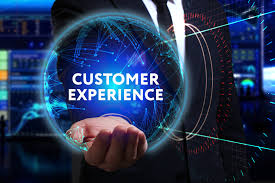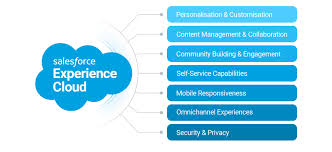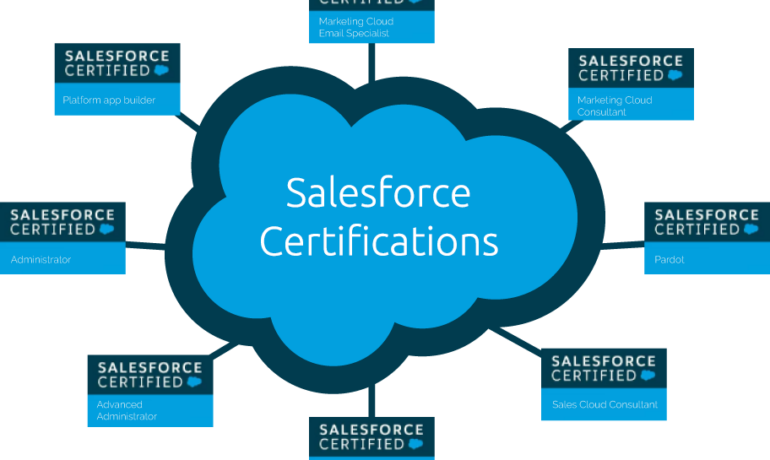Outsourced Salesforce Admin
Maximizing Business Potential with Outsourced Salesforce Admin Services Salesforce is an indispensable tool for managing customer relationships, streamlining operations, and driving growth. However, fully leveraging Salesforce’s capabilities requires skilled management, regular maintenance, and continuous updates. While some businesses prefer in-house management, outsourcing Salesforce admin services has emerged as a strategic option offering numerous advantages, including cost savings, access to specialized expertise, and improved system performance. This allows businesses to focus on core priorities. Key Benefits of Outsourcing Salesforce Admin Services 1. Access to Specialized Expertise Salesforce’s vast features and capabilities demand a deep understanding of its tools, integrations, and customizations. Outsourcing provides access to professionals with industry-specific expertise and up-to-date knowledge of Salesforce advancements. These experts ensure system optimization by implementing advanced features, automating workflows, and customizing dashboards, minimizing downtime, resolving issues efficiently, and improving overall system reliability. 2. Scalability and Flexibility Business needs evolve over time, and so do Salesforce requirements. Outsourced teams offer scalability and adaptability, making it easy to adjust services during periods of growth, mergers, system upgrades, or market expansion. This flexibility ensures businesses can meet their changing needs without disrupting operations. 3. Cost Efficiency and Resource Optimization Hiring and training in-house Salesforce administrators can be expensive. Outsourcing eliminates these costs by providing access to top-tier talent without the overhead of full-time employees. Moreover, outsourcing allows internal teams to focus on strategic initiatives rather than day-to-day Salesforce management, maximizing productivity. 4. Enhanced Security and Compliance Protecting sensitive data and ensuring regulatory compliance is critical, especially in highly regulated industries. Outsourced Salesforce administrators bring extensive experience in implementing robust security measures, conducting regular audits, and mitigating vulnerabilities. Their proactive approach ensures data integrity and minimizes risks. 5. Improved Operational Efficiency Outsourcing ensures routine maintenance, performance monitoring, and data cleansing are consistently handled, reducing errors and improving system performance. Outsourced teams also use advanced tools to identify inefficiencies and recommend optimizations, creating streamlined workflows and resource utilization. 6. Quick Issue Resolution Experienced outsourced admins can diagnose and resolve technical issues promptly, minimizing disruptions. Their expertise and access to dedicated support channels ensure faster problem resolution, enabling businesses to maintain productivity and meet customer expectations. 7. Strategic Guidance and Insights Beyond daily management, outsourced professionals provide valuable strategic insights based on their cross-industry experience. From identifying automation opportunities to recommending data-driven strategies, they help businesses leverage Salesforce to achieve long-term objectives and foster innovation. 8. Tailored Customization and Integration Salesforce’s customization potential is vast, but it requires expertise to align the system with business goals effectively. Outsourcing ensures seamless integration and customization, whether through unique workflows, custom applications, or third-party tools. This tailored approach maximizes ROI and ensures Salesforce evolves with the organization. 9. Continuity Despite Employee Turnover Employee turnover in in-house teams can disrupt Salesforce management. Outsourced providers ensure continuity through established processes and teams, minimizing downtime and reducing the burden on internal staff. 10. Focus on Core Competencies Outsourcing Salesforce management allows internal teams to focus on innovation, market expansion, and customer service, while experts handle Salesforce’s complexities. This alignment of resources drives long-term success. 11. Access to Advanced Tools and Technologies Outsourced teams leverage advanced tools for data accuracy, performance insights, and productivity enhancements. These technologies improve system usability and allow businesses to stay competitive. 12. Knowledge Updates and Ongoing Training Salesforce evolves continuously, requiring admins to stay updated with new features and industry trends. Outsourced professionals invest in ongoing training and certifications, ensuring businesses benefit from the latest advancements without dedicating internal resources to training. 13. Time-Zone Benefits and 24/7 Support For global businesses, outsourced teams provide round-the-clock support to address technical issues promptly, regardless of time zones. Maintenance tasks can also be scheduled during non-business hours, minimizing disruptions and enhancing efficiency. Conclusion Outsourcing Salesforce admin services is a strategic investment for businesses aiming to enhance performance, drive growth, and streamline operations. By leveraging the expertise of skilled professionals, businesses can benefit from seamless system management, tailored customizations, and proactive support while reducing costs and resource demands. For organizations seeking to stay competitive in today’s dynamicmarketplace, outsourcing Salesforce admin services is not just a convenience but a strategic move toward achieving long-term success. By leaving Salesforce management to the experts, businesses can focus on their core goals and drive innovation. Contact Tectonic Today. Like Related Posts Salesforce OEM AppExchange Expanding its reach beyond CRM, Salesforce.com has launched a new service called AppExchange OEM Edition, aimed at non-CRM service providers. Read more The Salesforce Story In Marc Benioff’s own words How did salesforce.com grow from a start up in a rented apartment into the world’s Read more Salesforce Jigsaw Salesforce.com, a prominent figure in cloud computing, has finalized a deal to acquire Jigsaw, a wiki-style business contact database, for Read more Service Cloud with AI-Driven Intelligence Salesforce Enhances Service Cloud with AI-Driven Intelligence Engine Data science and analytics are rapidly becoming standard features in enterprise applications, Read more











